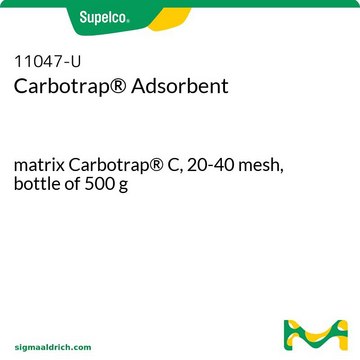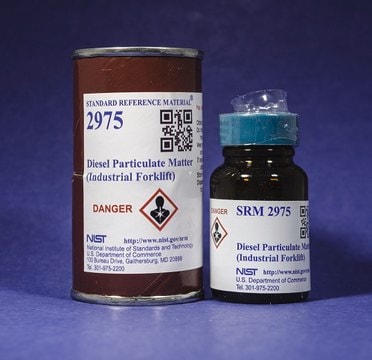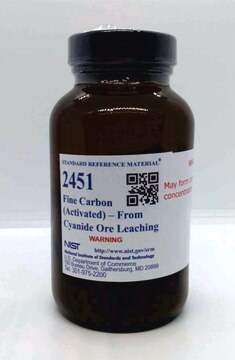699640
Carbon, mesoporous
less than 100 ppm Al, Ti, Fe, Ni, Cu, and Zn combined
Synonyme(s) :
Graphitized carbon black
About This Item
Produits recommandés
Qualité
battery grade
Forme
powder
Poids mol.
Mw 12.011 g/mol
Composition
C
Caractéristiques du produit alternatif plus écologique
Design for Energy Efficiency
Learn more about the Principles of Green Chemistry.
sustainability
Greener Alternative Product
Superficie
150-250 m2/g
Répartition Des Tailles De Particules
45 μm±5
Dimension de pores
0.5 cm3/g pore volume (typical)
Point d'ébullition
4827 °C
Pf
3654-3697 °C
Masse volumique apparente
1.686 g/cm3 (absolute, typical)
Application(s)
battery manufacturing
Autre catégorie plus écologique
Chaîne SMILES
[C]
InChI
1S/C
Clé InChI
OKTJSMMVPCPJKN-UHFFFAOYSA-N
Vous recherchez des produits similaires ? Visite Guide de comparaison des produits
Description générale
Application
Code de la classe de stockage
11 - Combustible Solids
Classe de danger pour l'eau (WGK)
nwg
Point d'éclair (°F)
Not applicable
Point d'éclair (°C)
Not applicable
Équipement de protection individuelle
Eyeshields, Gloves, type P3 (EN 143) respirator cartridges
Faites votre choix parmi les versions les plus récentes :
Déjà en possession de ce produit ?
Retrouvez la documentation relative aux produits que vous avez récemment achetés dans la Bibliothèque de documents.
Les clients ont également consulté
Articles
Mesoporous Materials include a range of high surface area porous silicates with applications in gas adsorption, drug delivery, diagnostics and catalysis.
Mesoporous Materials Synthesis
A key challenge for nanomaterial safety assessment is the ability to handle the large number of newly engineered nanomaterials (ENMs), including developing cost-effective methods that can be used for hazard screening.
Silica is a very popular inorganic nanomaterial used in a wide range of applications including fillers for rubber, catalyst supports, separation media, carriers in food and agriculture, and abrasive/anticaking agents in cosmetics. It is also widely believed to be an important material for biomedical applications for following reasons.
Notre équipe de scientifiques dispose d'une expérience dans tous les secteurs de la recherche, notamment en sciences de la vie, science des matériaux, synthèse chimique, chromatographie, analyse et dans de nombreux autres domaines..
Contacter notre Service technique











